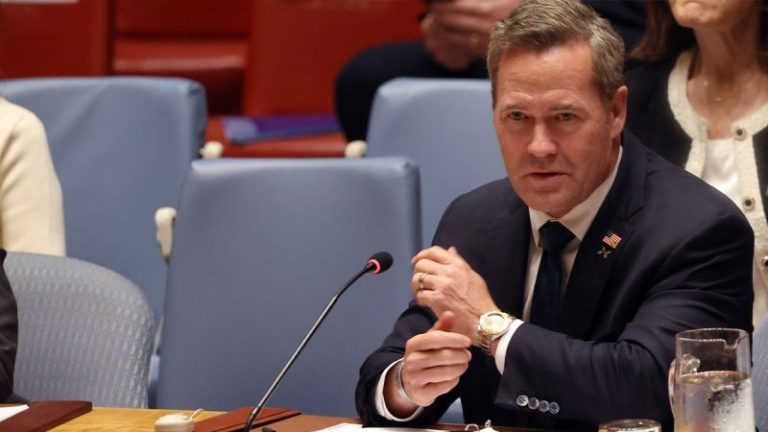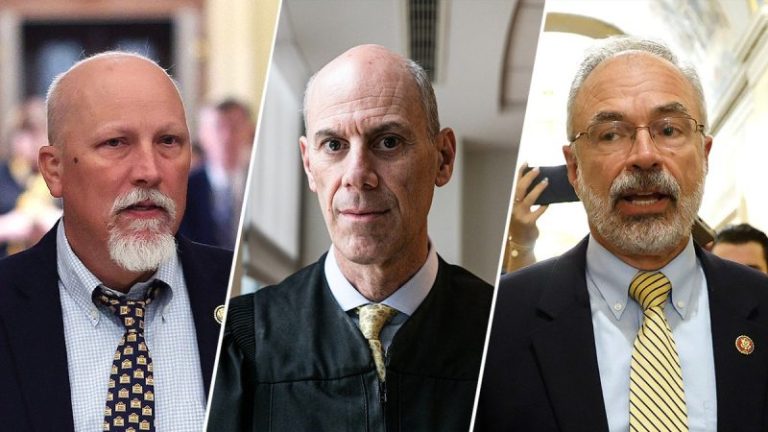Senate Democrats are requesting an investigation into what they say is ‘partisan messaging’ that the Trump administration used on official government websites during the longest government shutdown in U.S. history.
Sens. Elizabeth Warren of Massachusetts and Adam Schiff of California and others are urging the nonpartisan Government Accountability Office (GAO) to launch a probe into whether the Trump administration crossed a line and broke federal laws due to messages posted on official government websites that pinned the blame on Democrats for the shutdown.
‘Some agencies’ announcements appeared to include nothing more than partisan messaging and lacked a connection to official business,’ lawmakers wrote in a letter, sent to GAO Nov. 9.
Specifically, the lawmakers pointed to messaging posted on the Department of Housing and Urban Development’s website, which stated on its website during the shutdown: ‘The Radical Left are going to shut down the government and inflict massive pain on the American people unless they get their $1.5 trillion wish list of demands. The Trump administration wants to keep the government open for the American people.’
As a result, the lawmakers questioned whether the statement and others from separate agencies violated federal law, which bars using federal funds for ‘publicity or propaganda purposes.’
‘Longstanding federal appropriations law prohibits the executive branch from using federal funds ‘for publicity or propaganda purposes,’ including for purely partisan materials,’ the lawmakers wrote in their letter. ‘Federal law also prohibits agencies from using any appropriated funding, directly or indirectly, to generate publicity designed to influence Congress in supporting or opposing legislation or appropriations.’
But Hans von Spakovsky, a senior legal fellow at the conservative Heritage Foundation think tank, said that Democrats are seeking a distraction from their role in the shutdown.
‘This is an absurd claim and just a publicity stunt by Democrats desperate to push attention away from their failures,’ Spakovsky said in a Friday statement to Fox News Digital. ‘Blaming Democrats for the shutdown was absolutely accurate since they voted more than a dozen times to keep the government shutdown. Truth is an absolute defense to any claim of partisan messaging.’
The White House voiced similar sentiments in a statement to Fox News Digital on Monday.
‘It’s an objective fact that Democrats are responsible for the government shutdown, the Trump Administration simply shared the truth with the American people,’ White House spokeswoman Abigail Jackson said in a statement.
GAO spokesperson Jessica Baxter told Fox News Digital Friday that the organization had received the request and is in the middle of evaluating the request.
‘I can confirm that GAO has received this congressional request,’ Baxter said. ‘GAO has a process it goes through to determine whether we do work and when, which we are working through right now.’
Other lawmakers who signed the letter include Sens. Kirsten Gillibrand of New York, Richard Blumenthal of Connecticut, Chris Van Hollen of Maryland, Ron Wyden of Oregon, among others.
Trump signed a bill Wednesday to fund the government again as consequences of the lapse in funding started to build — including missed paychecks for federal workers and airline delays due to air traffic controller staffing shortages.
The bill keeps funding for the government at fiscal year 2025 spending levels through Jan. 30 to provide lawmakers an opportunity to secure a longer appropriations measure for fiscal year 2026.
The shutdown originated due to Republicans and Democrats sparring over various healthcare provisions to include in a potential funding measure. Trump and Republicans claimed Democrats wanted to provide illegal immigrants healthcare, and pointed to a provision that would repeal part of Trump’s tax and domestic policy bill known as the ‘big, beautiful bill’ that reduced Medicaid eligibility for non-U.S. citizens.
But Democrats said this wasn’t the case, and instead, said they want to permanently extend certain Affordable Care Act subsidies that are set to expire at the end of 2025.










